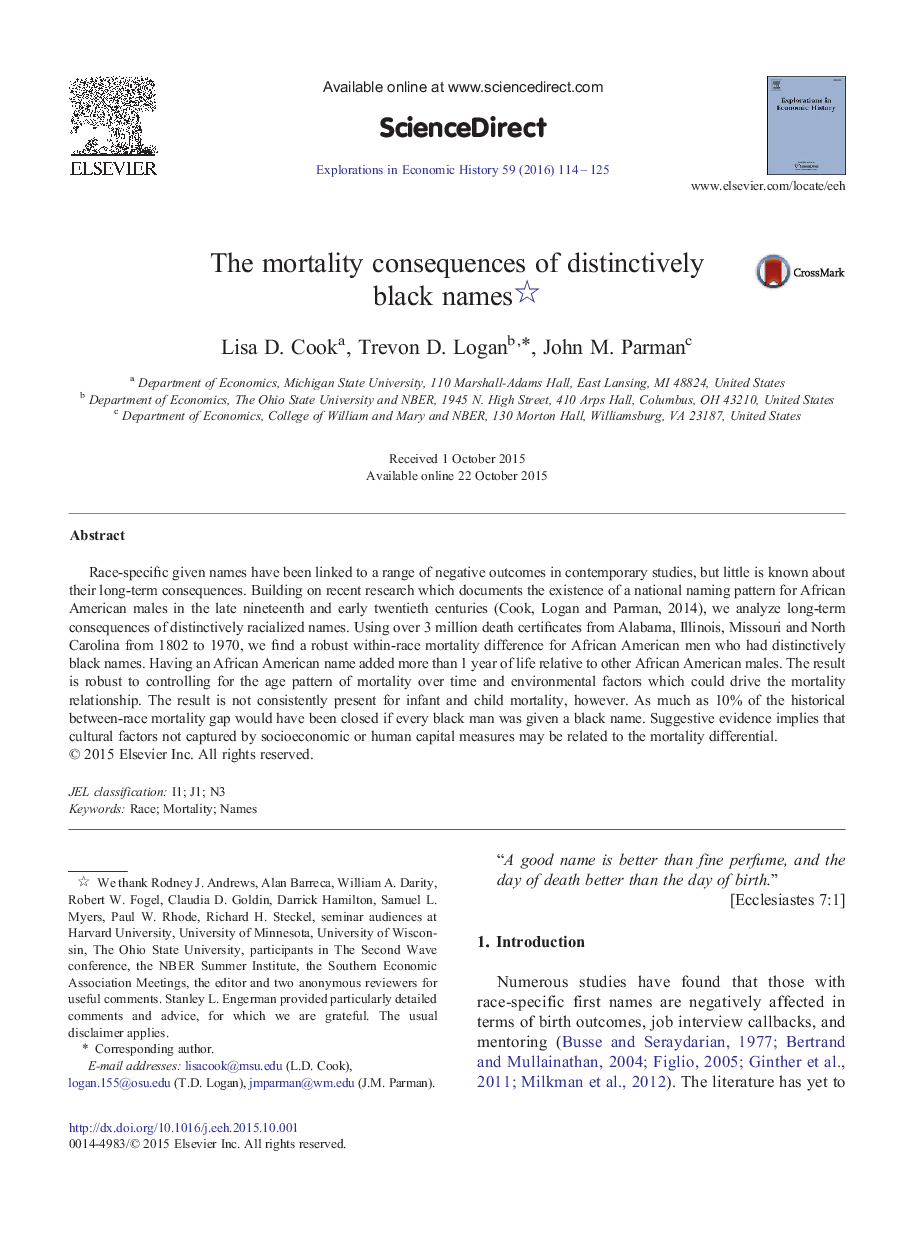| Article ID | Journal | Published Year | Pages | File Type |
|---|---|---|---|---|
| 5068740 | Explorations in Economic History | 2016 | 12 Pages |
Abstract
Race-specific given names have been linked to a range of negative outcomes in contemporary studies, but little is known about their long-term consequences. Building on recent research which documents the existence of a national naming pattern for African American males in the late nineteenth and early twentieth centuries (Cook, Logan and Parman, 2014), we analyze long-term consequences of distinctively racialized names. Using over 3 million death certificates from Alabama, Illinois, Missouri and North Carolina from 1802 to 1970, we find a robust within-race mortality difference for African American men who had distinctively black names. Having an African American name added more than 1 year of life relative to other African American males. The result is robust to controlling for the age pattern of mortality over time and environmental factors which could drive the mortality relationship. The result is not consistently present for infant and child mortality, however. As much as 10% of the historical between-race mortality gap would have been closed if every black man was given a black name. Suggestive evidence implies that cultural factors not captured by socioeconomic or human capital measures may be related to the mortality differential.
Related Topics
Social Sciences and Humanities
Arts and Humanities
History
Authors
Lisa D. Cook, Trevon D. Logan, John M. Parman,
